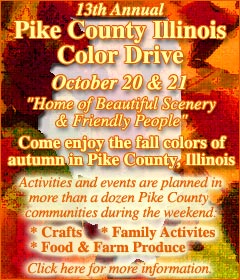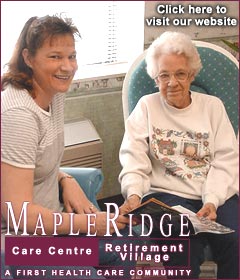|
Lincoln Junior High School students
have had a new anti-drug project just about every day this week,
said health teacher Sherri Sparrow. Using the theme "Heroes are drug
free," they have been decorating their homeroom doors, creating
posters and chalk art on the sidewalks, and placing red cups in the
chain-link fence across the street to leave a message.
Homeroom doors have already been
judged, and prizes will be awarded to both seventh- and eighth-grade
winners later this week. Judges were members of Snowball, a drug and
alcohol prevention leadership group for high school students.

On Tuesday seventh-graders learned how
drugs and alcohol can restrict their ability to carry out everyday
activities. Wearing DUI goggles, glasses that simulate being
"intoxicated and impaired," they had to maneuver around obstacles,
carry trays, and even pretend to be in cars and have to steer and
park.
An especially sobering project is
scheduled for Friday, "Grim Reaper Day." Kristi Lessen of the
Alcohol, Tobacco and Other Drug Task Force of the Healthy
Communities Partnership will dress as the Grim Reaper, and every 15
minutes she will pull a student out of class to represent a person
who was killed in a drunk driving accident somewhere in the United
States.
By the end of the day, 28 students will
have been pulled out of class. These "deceased" students will have
their faces painted white and will wear a button saying, "I was
killed in a drunk driving accident." The students will go back to
class but won’t speak unless asked by a teacher. Being deceased
won’t mean the students don’t have to continue with their
schoolwork.

Every day, students may dress to help
carry out a particular theme, Sparrow said. On Monday the motto of
the day was "Don’t Sleep Through Life by Using Drugs," and students
wore pajamas. Others days they will be wearing red or wearing
clothes inside out and backwards.
Lessen said Lincoln Junior High was one
of three schools in the area to receive $300 grants from a local
organization, Teaching Others Using Chemicals Hurts. TOUCH also gave
grants to Northwest Elementary School in District 27 and
Chester-East Lincoln School District.

[to top of second column in
this article]
|

[Photos by Joan Crabb]
At Lincoln Community High School, juniors
and seniors took part in a mock DUI today.
The outdoor demonstration, observed by
400 to 500 students, was a two-vehicle crash
simulation with four victims, according to Terry Storer, assistant
director of the Emergency Services and Disaster Agency, one of the
community groups that helped to stage the event.
A local towing company donated the
two vehicles, and four high school students played the parts of
the crash victims
—
one deceased, two injured and a driver
under the influence of drugs or alcohol.

"We will set up the cars as if they
have just collided," Storer said in explaining the plans. "The fire department will do a
patient extrication, cutting kids out of the vehicles, and the
police will do a simulated field sobriety test to see if the driver
is impaired.
"One of the victims will be a trauma
patient who must be airlifted to a hospital, and Air Evac Life Team,
a private company from Springfield, has volunteered to be here with
a helicopter to take him to a trauma center somewhere."

Logan County Coroner Chuck Fricke would
also make a presentation, Storer said.
ESDA was assisted by the Lincoln
City Police, the Logan County Sheriff’s Office and the Lincoln Fire
Department. The ATOD Task Force and the Lincoln Park District also helped to sponsor the event.
Although he won’t be here during Red
Ribbon Week, nationally known speaker Stephen R. Sroka will speak to
both high school and junior high students on Nov. 7, according to
LCHS Assistant Principal Todd Poelker. Sroka speaks on making schools and communities safe and drug free.
He has appeared on "Oprah," in USA Today and on CNN. He has also
written a dozen books and more than 30 articles.
"He will
talk about drug awareness and personal responsibility, and for us to
get him here is a real accomplishment," Poelker said.
[Joan Crabb]

|
|
"As long as parents continue to
consider car crashes as a matter of fate, or accept these events as
an inevitable part of teen driving, parents will fail to see their
role in reducing these events and protecting their children," says
Gary Direnfeld, executive director of the North American-wide I
Promise Program, a teen safe-driving initiative.
It is important to move away from the
use of the term "accident," he says, as this implies that the
crashes are a matter of fate, when more often than not, this is
hardly the case.
There are several known contributors to
teen driver car crashes, including excessive speed, risk-taking
behavior, multiple teen passengers and driving after midnight.
Parents often confuse their trust in their teen with recognizing
that normal adolescent behavior includes greater risk taking and
more impulsive judgment.
Direnfeld surfs the Internet news
articles almost daily and finds that at least one of these known
crash contributors is evident in virtually every teen driver car
crash. "As soon as parents learn they can control for many of these
factors, their teens will have a better chance of returning home
safely each night," he explains, "and this applies equally to girls
and boys."

[to top of second column in
this article]
|

To help parents and society change
their thinking, Direnfeld is encouraging all reporters and their
editors to move away from the use of the term "car accident," in
favor of "car crash" or "collision."
It is important to use the correct
words, he says, as this will have social and behavioral
implications. Once parents realize these crashes are avoidable
events, they are far more likely to act in the interest of their
teen’s safety and participate in such initiatives as the
I Promise Program. With
25 percent of all teen drivers experiencing a crash in their first
year of independent driving and car crashes as the leading cause of
teen death and injury, this is no small issue.
Direnfeld
thinks reporters and editors are getting the message. "I continue to
surf the Internet looking at these articles daily, and the ratio of
articles coming up under ‘car crashes’ as compared to ‘car
accidents’ is getting better. Kudos to the reporters," he says.
[I Promise Program news
release] |